Discover Mastering Tech Growth
Mastering Tech Growth
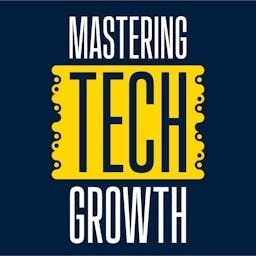
92 Episodes
Reverse
Most “CTOs” are still senior engineers with a fancy title — stuck in the code, fumbling in the boardroom, and bleeding money through bad tech decisions. This conversation shows you how to flip into a true business-first CTO who leads with strategy, ROI and systems, not commit history.Perfect listen for aspiring CTO in a startup or scale-up who keeps getting pulled into delivery hell while your CEO wants commercial answers, not technical detail.To unpack this, I sat down with Khalil Dimachkie, co-creator of Imperial College’s Emerging CTO Programme. He’s the CTO at Blue Light Card, leading technology for 5.7m+ frontline members, has grown teams from 1 to 100+, and has advised private equity firms through tech-heavy M&A deals.https://www.linkedin.com/in/khalild/In this episode:The “engineering trap”: how hands-on CTOs slow the business down, lose investor confidence, and what it looks like to escape into a true executive role.A simple way to “zoom out” and spot your own gaps as a CTO, plus how to use coaches, communities and structured programmes to build real business skills fast.The core operating system of a modern CTO: ROI as your north star, how to think about metrics beyond DORA, and why security posture belongs in every board pack.How to spend your first 90 days as a new CTO: the discovery pattern Khalil uses, who to speak to, what to map, and how to resist being dragged into firefighting.The meetings, habits and reports that signal you’re a business-focused CTO: daily trading checks, monthly operational reviews, one-to-ones that actually work, and non-negotiable release decision rights.Where most tech teams leak money in the cloud, why logging and microservices are often the culprits, and how to embed FinOps thinking into everyday engineering.Get the links, notes and CTO resources from this episode at masteringtechgrowth.com.
Stop hoarding expertise. Start unlocking growth with real curiosity.Most tech teams trust expertise. Leaders build, iterate, and launch what they “know”—but 8 out of 10 startups fail because experts don’t check if buyers want the solution. As expertise grows, so does risk: teams build in isolation, decisions loop inside closed rooms, and market changes pass by unseen.Now, you flip the script. Winning founders lead with curiosity and humility. They ask great questions, engage real customers, and spend one day a month outside the office. Instead of perfecting the answer, they chase discovery—with rapid feedback, a culture of open debate, and constant relevance. Start with purpose, build in public, test ideas fast, and adapt before the data goes stale.Bring your team together, not just engineers. Rotate pods, mix perspectives—then go out and find three ways anyone else would solve your problem. Seek the proof of discovery, not proof of expertise. Keep future-focused, stay a bit paranoid, and let curiosity be your growth engine.Book one curiosity day next month. Walk your market, listen hard, then share what you find.Alan Gregerman rewrites the playbook every day, so you learn from real-world results.About Alan Gregerman: Innovation consultant, keynote speaker, author — trusted by 350+ global firms including Google and Mercedes-Benz.What we discussed: → Why customers—not expertise—call the shots in tech growth→ How the speed of AI changes experience and timelines→ Real failure rates from assuming you “know” the market→ Six skills that leaders must master (not just “soft skills”)→ Concrete hacks: Lego tests, market walks, cross-silo pods→ The role of humility and paranoia in fast-changing industries→ How to stay relevant by getting out of the officeWhere to find Alan Gregerman:→ Website: https://alangregerman.com→ LinkedIn: https://www.linkedin.com/in/alangregerman/Where to find Mike Sirius:→ Website: https://www.mikesirius.com→ LinkedIn: https://www.linkedin.com/in/msirius/👉 Grab the community playbooks and join us @ masteringtechgrowth.comQuestion for you:🗣️ What single customer need will you ask about before you build?
In this conversation, Mike Sirius and Matt Watson discuss the evolving landscape of tech growth, emphasising the shift from merely closing tickets to owning outcomes. They explore the importance of lead generation, building relationships, and the role of AI in software development. Matt shares insights on empowering engineers to think beyond tasks, fostering a culture of outcome ownership, and the significance of customer feedback. The discussion highlights the need for clarity in communication and the impact of leadership on team dynamics, ultimately advocating for a more holistic approach to software development that priorities customer value and collaboration.TakeawaysTech growth is more about sales and marketing than technology.Being best known for what you do is crucial for success.Lead generation is more important than closing deals.Building relationships is key to successful lead generation.Engineers should focus on outcomes, not just tasks.AI is changing the landscape of software development.Clarity is essential for software engineers to be productive.Empowering team members leads to better outcomes.Celebrating wins fosters a positive team culture.Customer feedback is vital for continuous improvement.
In this conversation, Mike Sirius and Samir Samir ElKamouny discuss the essential strategies for mastering tech growth, focusing on the importance of identifying bottlenecks, understanding ideal customer profiles, and the necessity of a full funnel approach. They emphasise the significance of competitive analysis, effective messaging, and the need for continuous testing and optimisation in marketing channels. The discussion also highlights the importance of customer feedback and the creation of targeted landing pages to enhance conversion rates.TakeawaysMastering tech growth involves understanding technology's role in business growth.Identifying bottlenecks is crucial for optimizing growth strategies.A full funnel approach is necessary for predictable revenue generation.Understanding your ideal customer profile (ICP) is foundational for effective marketing.Multi-touch decision-making requires addressing various stakeholders' needs.Crafting effective messaging is key to engaging your target audience.Competitive analysis helps in positioning your business effectively in the market.Testing different marketing channels is essential for finding the right fit.Creating targeted landing pages can significantly improve conversion rates.Leveraging customer feedback is vital for continuous improvement. Specific landing pages can significantly improve conversion rates.Targeted messaging is essential for addressing customer pain points.Data analysis helps identify bottlenecks and opportunities for growth.Heatmaps provide valuable insights into user behavior on websites.AI can enhance the speed and effectiveness of creative testing.Budget allocation should focus on personal development and impactful tools.Different social media platforms serve various roles in the marketing funnel.Lead forms may yield lower quality leads compared to landing pages.Video content can dramatically increase conversion rates.Integrating direct outreach with ad campaigns enhances brand recognition.Chapters00:00 Introduction to Tech Growth Strategies03:10 Identifying Bottlenecks for Growth06:00 The Importance of a Full Funnel08:57 Understanding Ideal Customer Profiles (ICP)12:11 Navigating Multi-Touch Decision Making15:00 Crafting Effective Messaging and Positioning17:55 Competitive Analysis for Market Positioning20:57 Testing and Optimizing Marketing Channels24:11 Creating Targeted Landing Pages26:56 Leveraging Customer Feedback for Improvement29:56 Final Thoughts on Growth Strategies47:44 The Importance of Specific Landing Pages50:08 Targeted Messaging for Higher Conversions53:37 Leveraging Data for Business Growth56:29 The Role of Heatmaps in User Experience01:01:03 AI in Creative Testing and Marketing01:10:18 Budget Allocation for Maximum Impact01:11:07 Understanding Social Media's Role in the Funnel01:12:07 Lead Forms vs. Landing Pages: Quality Comparison01:14:46 Creating Effective Proof Assets01:17:15 Creative Formats Across the Funnel01:18:31 Integrating Direct Outreach with Ad Campaigns
Richardson Dackam is an AI Automation Engineer who's built a full ecosystem around one goal — helping founders build faster using AI. A YC Startup School alum and former senior engineer at Ticketmaster, FreshBooks, and Aurora Solar, Richardson blends deep technical experience with rapid prototyping systems that empower solo founders to go from idea to validated AI SaaS in a single weekend. Through his podcast, courses, and community, he teaches how to harness agentic AI frameworks, automate product workflows, and launch with speed — without waiting for a team, funding, or perfect plan.In our conversation, Richardson shares:→ Why most founders freeze — and how to break idea paralysis→ The playbook to validate and build AI SaaS in just 48 hours→ What makes a painkiller idea (vs. a vitamin)→ How to use AI for customer research, roleplay, and PRD writing→ The tools behind “Weekend Architecture” and real-time prototyping→ His favorite way to get feedback before writing a single line of code→ Why community is the ultimate shortcut to traction→ What founders get wrong about market timing and speedWhether you're a solo founder, indie hacker, or operator, this episode is packed with frameworks you can put into action immediately — even this weekend.Where to find Richardson Dackam:→ Website: https://richdackam.com/→ LinkedIn: https://www.linkedin.com/in/richardsondx/→ X/Threads: https://x.com/RichardsonDxWhere to find Mike Sirius:→ Website: https://www.mikesirius.com→ LinkedIn: https://www.linkedin.com/in/msirius/In this episode, we cover:00:00 Introduction to Tech Growth and AI05:47 Overcoming Founder Challenges and Decision Paralysis11:48 Understanding Customer Value and Painkillers vs. Vitamins17:58 Finding Your Ideal Customer Profile (ICP)23:46 Building Prototypes and Product Requirement Documents (PRD)29:47 The Role of Community in Product Launches35:49 The Future of SaaS in an AI-Driven World41:40 The Hype of AI and Its Real Impact49:46 Understanding AI Context and Its Importance55:07 Micro Pain and Micro SaaS Opportunities01:01:06 Building Systems for Efficiency01:08:30 The Importance of Distribution in Startup Success🎙️ Was this helpful? Let’s stay connected:→ Subscribe to never miss a drop→ Reviews mean the world — and help us grow→ Drop a comment — we actually read them 🙂→ Want to sponsor? Let’s chat: mike@msirius.com→ More episodes: https://masteringtechgrowth.com
In this conversation, Ryan Debenham shares insights on the importance of crossing lanes in the tech industry, emphasising that software engineers must engage with go-to-market strategies to build products that resonate with customers. He discusses the significance of product market fit, the need for empathy in understanding customer needs, and the evolving role of engineers in shaping successful products. Ryan also highlights the value of continuous learning and adapting to new technologies, particularly AI, as essential for career growth in the tech landscape.TakeawaysA good product is the primary driver of growth.Engineers must understand customer needs to build successful products.Crossing lanes from engineering to go-to-market is essential for growth.Empathy is crucial for engineers to connect with customers.Engineers should actively engage in customer interactions.Developing a value framework can enhance product development.Cultural shifts in engineering teams can improve collaboration.AI is revolutionizing the tech industry and engineering roles.Asking the right questions is key to effective product development.Prioritising professional growth over titles leads to long-term success.Chapters00:00 Introduction to Tech Growth and Career Paths02:43 The Importance of Product Market Fit06:01 Crossing Lanes: The Shift from Engineer to Leader09:01 Understanding Customer Needs and Empathy11:51 The Role of Engineers in Product Development14:39 Building Credibility Through Cross-Functional Collaboration17:38 The Impact of Organizational Structure on Growth20:39 Strategies for Engineers to Engage with Customers23:41 Conclusion: Embracing a Customer-Centric Mindset42:51 Shifting Mindsets: From Code to Business Value45:23 Cultural Change: Encouraging Engineer-Customer Interaction49:35 The Rise of AI in Engineering: Embracing New Tools53:55 Understanding Customer Value: A Framework for Engineers01:02:59 Essential Reads for Engineers: Communication and Leadership01:09:12 Bridging the Gap: Engineering and Business Understanding01:11:46 The Importance of Purpose: Why Are We Building This?01:15:38 Embracing Challenges: The Path to Professional GrowthKeywordstech growth, software engineering, product market fit, customer empathy, go-to-market strategies, engineering leadership, AI in tech, career development, value framework, engineering culture
In this conversation, Mike Sirius and Andrei Nita discuss the critical role of strategy in technology leadership, emphasising that successful CTOs prioritise business goals over technology itself. They explore the importance of understanding business maturity, the challenges of managing a troubled tech stack, and the need for hiring versatile talent. The discussion also covers the transition from a reactive, firefighting approach to a proactive, strategic leadership style, and the significance of aligning technology with business objectives to drive growth and value. The speakers delve into the multifaceted role of a CTO, discussing the importance of effective communication, understanding technical debt, and the significance of aligning engineering objectives with business goals. They explore strategies for navigating the first weeks in a new role, the necessity of constant updates to executives, and the challenges of leading change in a resistant company culture. The discussion also highlights the importance of financial literacy for CTOs and the need for a clear decision-making framework in urgent situations.TakeawaysCTOs should prioritize strategy over technology.Business maturity influences tech decisions.Hiring should focus on generalists with business acumen.Firefighting leads to survival mode, not growth.Establish must-not-cross thresholds for tech stability.Align tech initiatives with business goals.Effective presentations should focus on customer value.Process improvement should be reactive in early-stage startups.Avoid decisions that lead to dead ends in tech development.Tech strategy must resonate with executive goals. Three is a comfortable number for decision-making.Understanding pain points is crucial in the first week.Delivering on a project that others couldn't is a key win.Constant communication with executives is essential.Technical debt should be integrated into regular work.Linking engineering OKRs to business goals is vital.Hiring should focus on maintaining quality and vision.Selling infrastructure upgrades requires focusing on results.CTOs should have a strong grasp of financial metrics.Decision-making should align with company goals.Sound Bites"Put strategy first and technology second.""It's a timeline, not just one thing.""If everything is a P0, nothing is a P0.""You need to understand what the business is.""You need to think about revenue.""Hire generalists, not just developers.""Focus on process too much won't help.""You can have a decision that can be undone.""Assume you're presenting to a customer.""You're there as part of a business.""Communication should never stop.""You should know the business numbers."KeywordsCTO, technology strategy, business growth, tech leadership, hiring, tech stack, business value, tech-first mindset, agile development, process improvement, CTO, leadership, technical debt, communication, engineering, business goals, product ownership, infrastructure upgrades, hiring, company culture, decision making
In this episode, Mike Sirius and Hikari Senju delve into the transformative role of AI in advertising. They explore how AI can streamline ad creation, enhance personalisation, and improve efficiency, while also discussing the importance of understanding growth loops and the impact of customer obsession on business success. Hikari shares insights on the evolution of advertising, the challenges of generating effective ads with AI, and the performance metrics that matter. The discussion highlights the balance between leveraging AI technology and maintaining brand authenticity. TakeawaysAI advertisement saves time and money for founders.Growth loops create a compelling user journey.Second order effects are crucial for sustainable growth.AI can personalize ads based on real-time data.The creative process in advertising was traditionally labor-intensive.AI can generate multiple ad variations quickly.Performance metrics are essential for evaluating ad success.AI-generated ads can outperform traditional ads in ROI.Authenticity in branding is vital for consumer trust.AI's capabilities in video generation are still developing. The market will dictate who runs advertising cheaper and more effectively.Personalized products have been trending due to social media and targeted advertising.Finding the right audience is crucial for D2C brands.AI fuels the fragmentation of brands targeting niche audiences.Legacy brands may regain value as consumers seek trust and comfort.YouTube's data is a competitive advantage for Google.Legal risks exist in using AI-generated content without permission.AI technology is improving at an exponential rate.Most video ads on platforms like YouTube will soon be AI-generated.Return on ad spend is the most critical metric for advertising success.Sound Bites"Growth loops create a snowball effect for business.""Customer obsession drives growth as a number one.""AI can generate thousands of ads in one go.""Authenticity is key for brand trust in advertising.""AI does a better job with graphic design than video.""AI's uncanny valley still exists in video ads.""The market will dictate who will run this cheaper.""There's been a trend towards personalised products.""AI just fuels that further.""YouTube is a massive treasure trove of data.""Stealing someone's artwork is a real risk.""Return on ad spend is the most important metric."
Stop treating go-to-market like a one-off campaign. Build it like a product with alpha, beta and brutal go/no-go rules so you can ship faster, learn faster, and avoid the “we launched it anyway” disaster.Perfect listen for product, marketing or growth leads in lean startups where launches keep slipping because nobody truly owns the go-to-market, so approvals, handoffs and rework quietly kill momentum.To unpack this, I spoke with Anya Cheng. She wrote a book that breaks down the alpha–beta–launch approach used inside Meta, eBay and Target. She’s also founder and CEO of Taylor, an AI-powered menswear rental and personal styling company, and a former product and go-to-market leader at Facebook, eBay, Target and McDonald’s.Where to find Anya Cheng: https://www.linkedin.com/in/anyacheng/In this episode:Why internal reasons kill launch dates and the lightweight system that removes the chaos.How to use tiny rollouts to learn fast and reduce risk.The big-tech pattern you can copy: test at 0.1%, then scale through 1%, 10%, 20%, 50% when the signal is real.What to measure in beta so data beats opinions before you open the floodgates.How to avoid the classic trap of changing the message mid-flight.Get the links, notes and resources from this episode at masteringtechgrowth.com
Selling your business is where most founders lose their leverage, not win it. This episode shows how to turn your tech company or agency into a sellable asset years before exit so buyers pay up instead of retrading you down at the last minute.Perfect listen if you’re a bootstrapped or lightly funded tech / agency founder who wants real exit options, not burnout, golden handcuffs and a surprise haircut on valuation.To unpack this, I sat down with Jordan Calderon, a two-time exited founder and president of StratDev, one of the top 100 marketing firms in the US. He’s built and sold multiple bootstrapped companies, lived through a painful retrade on his first exit, then engineered a multi-offer, over-ask sale on his second.https://www.linkedin.com/in/jordan-a-calderon/In this episode:The simple “hit-by-a-bus” test Jordan uses to spot founder dependency early and remove it so you don’t get stuck in multi-year earn-out handcuffs.How the M&A process actually works (CIM, LOI, due diligence, retrades) and the brutal $50m → $1.2m horror story that proves why exit readiness is a 1–3 year game, not a 3-month sprint.The three levers buyers care about most: sustainable growth curves, a business that runs without you, and SOPs that can add roughly +1x EBITDA to your valuation almost out of thin air.A dead-simple framework for building SOPs in Google Docs (including the “Starbucks stranger” test) so any new hire—or buyer—can follow your processes like a recipe.How Jordan uses offshore and nearshore teams to charge “US prices, global costs” while improving delivery quality and margins.The pricing and negotiation moves he used to go from being retraded on his first deal to running a competitive process with 11 LOIs, anchoring high, and protecting terms inside the LOI.Get the links, notes and resources from this episode at masteringtechgrowth.com
You’ve met AI assistants. Now imagine one that knows you. It understands your ideas, your voice, your judgment, and works beside you. In this episode, I sit down with Suman Kanuganti, CEO and Co-Founder of PersonalAI, to explore how AI agents built from your own knowledge are redefining what it means to work and think.Suman explains how AI agents capture organisational knowledge, learn continuously, and operate as role-based teammates instead of generic assistants. We talk about why structured data is no longer a bottleneck. How no-code AI tools accelerate adoption. What it really takes to build private, secure AI systems that scale with your business.We also explore a bigger question. What happens when every professional has a personal AI that mirrors their mind? From collaboration and efficiency to governance and trust, this conversation shows how the next generation of AI agents will reshape work by the end of the decade.If you rate this episode and leave a short comment, I’d love to thank you personally.Join the community at masteringtechgrowth.com and I’ll send you an exclusive growth resource I use with founders every week.
Marc Adams helps business owners plan their exit the smart way. He is a top business exit planner, M&A expert, and best-selling author. Marc shows founders how to grow their business, sell it, and keep more money. He is backed by £18 billion in family office support. His system helps you find hidden value, grow through acquisition, and avoid big tax bills when you sell.In this episode, Marc answers:→ What is a business exit strategy, and why should you plan it from day one?→ How can business exit planning help you keep more of what you built?→ What is the smartest way to grow through acquisition as a founder?→ How can you buy a business with no money down, even with no experience?→ Why do most business owners lose money in M&A, and how can you avoid it?→ What does a tax free business sale look like, and who qualifies for it?→ How does personal legacy shape your exit plan, and why does it matter?If you’re a founder, business owner, or entrepreneur who wants to grow, sell, or keep more from your exit, this episode is for you.Where to find Marc Adams:→ Website: https://acquisitions4you.com/→ LinkedIn: https://www.linkedin.com/in/1marcadams/Where to find Mike Sirius:→ Website: https://www.mikesirius.com→ LinkedIn: https://www.linkedin.com/in/msirius/In this episode, we cover:00:00 The Journey of a Young Entrepreneur03:10 Understanding Business Valuation and Exit Strategies05:59 The Importance of Planning for Business Sale08:57 Overcoming Personal Challenges and Finding Purpose12:13 Strategies for Doubling Business Value15:12 Navigating Tax Implications in Business Sales18:01 Acquisition Financing and Consulting for Equity20:53 Building Value Without Cash Investment33:56 Turning Points: A Teen's Journey from Trouble to Triumph36:21 Creative Financing: Strategies for Young Entrepreneurs38:33 The Information Game: Knowledge vs. Implementation40:50 Tax Strategies: Navigating Business Structures43:41 Finding the Right Specialists: Building Trust in Business48:15 Setting Goals: The Importance of Vision in Business51:39 Accelerating Growth: Strategies for Rapid Business Expansion01:02:03 Understanding Business Value and Growth Strategies01:04:25 The Importance of Tailored Business Strategies01:06:40 Secret Methods for Doubling Business Value01:07:30 Wealth Protection Post-Sale01:10:01 The Double and Keep It Blueprint01:12:13 Rapid Fire Questions on Business Acquisition01:19:19 Credibility in Zero Down Business Deals01:22:45 Understanding Earn Outs and Acquisition StrategiesFor inquiries about sponsoring the podcast, email mike@msirius.com
Ali Hafizji is the CEO of Wednesday Solutions and the creator of the Vibe Sprints system — an AI-powered approach to product validation that gives early-stage startups up to 10x more chances to achieve product-market fit. A serial founder and technologist, Ali has built and scaled products handling over 1 billion+ requests per hour, authored technical books, and helped dozens of teams go from MVP to market traction.At Wednesday, he works with founders post-MVP, helping them avoid wasted sprints, move past vanity metrics, and build lean, validated solutions using Vibe Coding and AI-native teams. If you're working toward product-market fit in 2025, this is the framework you can't afford to ignore.In our conversation, Ali shares:→ Why polishing MVPs slows you down — and what to do instead→ How to structure rapid prototyping that tests real customer behaviour→ The #1 mistake startups make after launch→ How customer discovery fits into modern product management→ Why direction beats speed in the search for PMF→ What makes Vibe Coding different from agile or lean→ Why the future of startup teams is small, AI-native pods with massive velocityWhether you're a startup founder, product leader, or operator navigating the messy middle between MVP and traction, this episode is packed with practical insights for achieving startup success in 2025 and beyond.Where to find Ali Hafizji:→ Website: https://www.wednesday.is/→ LinkedIn: https://www.linkedin.com/in/alihafizji/Where to find Mike Sirius:→ Website: https://www.mikesirius.com→ LinkedIn: https://www.linkedin.com/in/msirius/In this episode, we cover:00:00 Introduction to Vibe Sprints04:49 The Shift from Speed to Direction09:49 Understanding Insights and Validation15:13 The Dangers of Polishing MVPs19:51 The Role of AI in Product Development24:58 Measuring Success in Vibe Sprints29:56 The Future of Agile Practices41:03 The Precipice of Change in Enterprises44:05 AI Tools: Prototyping vs. Production47:06 The Role of Experienced Developers in AI50:30 Bottom-Up Innovation: The Future of AI Adoption52:42 Essential AI Tools for Development01:02:23 User Feedback: Observing and Understanding Users01:06:29 Proving Traction Before Development01:11:10 Balancing Validation and Runway Risk🎙️ Was this helpful? Let’s stay connected:→ Subscribe to never miss a drop→ Reviews mean the world — and help us grow→ Drop a comment — we actually read them 🙂→ Want to sponsor? Let’s chat: mike@msirius.com→ More episodes: https://masteringtechgrowth.com
Garrett Mehrguth is the CEO of Directive and co-founder of Abe — a high-performance LinkedIn ads agency helping companies like Uber, Zoom, Gong, and AWS turn clicks into customers. With over $68 million spent on LinkedIn ads, Garrett brings a level of insight few marketers can match. In this episode, he reveals how to build a LinkedIn marketing engine that books meetings — not just impressions.Garrett has helped B2B brands generate serious revenue by mastering linkedin lead generation, nailing down linkedin ads targeting, and aligning linkedin ads KPIs with what actually matters to pipeline. Whether you're spending $5K or $500K a month, this episode will change how you think about b2b marketing on LinkedIn.In our conversation, Garrett shares:→ Why most B2B teams waste their LinkedIn ads budget→ The truth about linkedin ads metrics (and which ones lie)→ How to reverse-engineer your linkedin ads audience using real data→ Why $5K/month is not a “test budget” — it’s a trap→ How he builds intent-based funnels without fake “intent data”→ The 15-second video strategy that cuts CPLs by 70%→ Why "clicks" mean nothing if you're not booking meetingsWhether you're a startup founder, head of growth, or B2B marketing pro, this conversation is packed with no-fluff insights into what actually drives results on LinkedIn in 2025.Where to find Garrett Mehrguth:→ https://www.linkedin.com/in/garrettmehrguth/→ https://garrettmehrguth.com/→ https://directiveconsulting.com/→ https://www.abetheagency.com/→ https://moregoodcapital.com/Where to find Mike Sirius:→ https://www.linkedin.com/in/msirius/→ https://www.mikesirius.comIn this episode, we cover:00:00 The State of LinkedIn Advertising02:59 Understanding Marketing Dynamics05:54 Budgeting for Success in LinkedIn Ads09:04 Intent-Driven Targeting Strategies11:58 The Importance of Proper Budgeting15:12 Data-Driven Audience Targeting18:13 Leveraging AI for Market Insights21:14 The Role of Content in Marketing24:05 Optimizing Video Ads for Engagement27:14 Innovative Approaches to Lead Generation30:02 Sales Strategies for Effective Conversion32:58 Closing Thoughts on Marketing Success42:51 Authentic Engagement in Sales Calls45:24 Manufacturing Intent in Marketing46:45 The Power of Emotional Marketing50:12 Targeting the Right Decision Makers56:41 Importance of Tracking Marketing Metrics01:00:34 Common Mistakes in LinkedIn Advertising01:10:05 The Future of B2B Marketing StrategiesFor sponsorship inquiries, email mike@msirius.com#LinkedinAds #B2BMarketing #LeadGeneration #LinkedInMarketing #MarketingStrategy
Spriha Tucker is the Field CTO at Buildkite — a developer-first platform powering high-scale CI/CD pipelines. She’s a two-time Y Combinator founder, and previously built dev tools at Google and Microsoft. She also co-founded Aviator, a startup that helped elite teams like Slack and Figma ship faster.At Buildkite, Spriha helps engineering teams navigate scaling challenges, eliminate organisational friction, and build sustainable momentum without burnout. If you're leading a dev team in 2025, this is a must-listen conversation.In our conversation, Spriha shares:→ Why developer productivity isn't about doing more — it's about reducing friction.→ What most tech leaders misunderstand about developer experience→ The hidden costs of pipeline complexity and CI/CD sprawl→ How to measure progress without weaponising metrics→ Why feedback loops beat deadlines every time→ How to align teams with clarity, not chaos→ The future of tooling and workflows in software engineeringWhether you're a CTO, engineering manager, or hands-on developer, this episode offers a tactical, honest look at what it takes to scale high-performing teams in the real world.Where to find Spriha Tucker:→ Website: https://buildkite.com/→ LinkedIn: https://www.linkedin.com/in/spriha-tucker/Where to find Mike Sirius:→ Website: https://www.mikesirius.com→ LinkedIn: https://www.linkedin.com/in/msirius/For inquiries about sponsoring the podcast, email mike@msirius.comRate us ⭐⭐⭐⭐⭐ and check our community at https://masteringtechgrowth.com/
Today, Mike is joined by Ben Buaron, Founder & CEO of Windmill Growth. They help founders turn their LinkedIn into their number one growth channel. No hacks, no influencer playbooks, just real, sustainable visibility that brings in leads, builds credibility and opens doors. Ben’s been a founder himself and now teaches others how to stop hiding behind logos and leverage LinkedIn to build trust.
Ben and Mike unpack why visibility beats marketing and how to make organic LinkedIn work for you, even if you're just getting started.
KEY TAKEAWAYS
You don´t need more marketing, you need visibility, which even a new startup can get on LinkedIn.
Founder-led marketing is the future.
Position yourself as a thought leader and focus on top-of-funnel content. Provide value and share your unique insights and opinions.
Content strategy and consistency matter more than perfect writing.
Stick to your posting timetable - 2-5 times a week is ideal.
Use AI, but only to refine your content.
Engagement is about quality, not quantity.
Build relationships - avoid aggressive sales tactics.
Trigger emotions through storytelling to drive engagement and long-term connection.
LinkedIn is a long-term game. It takes 6-9 months to build your personal brand and generate leads.
Organic content and personal branding can generate leads and revenue more cost-effectively than traditional advertising methods.
BEST MOMENTS
00.05 "Early-stage founders think that slow growth means that they need more funnels, more content, more ads, and they tend to forget that people don't buy from perfect branding. They buy from people they trust."
5.03 "If I'm not posting on LinkedIn, I'm not exposing myself, I'm not exposing my company."
5.41 "I got inbounds from LinkedIn that generated me 12k in MRR in a single month. Just because I was putting myself out there."
13.15 "I prefer to have 1 billion people say, 'This guy built it,' than have $1 billion because of the power of 1 billion people."
36.17 “If was easy everyone would do it.”
47.51 “ You engage with your ICP’s content and your competitor’s content, and everyone else in your space’s content.”
20.15 "I generated $85,000 in June just from making really good content and combining outreach."
1.00.51 “A really good hook – a short hook that includes the word I or We, works.”
If you enjoyed the show, please do me a favour - Hit that subscribe button and send me your growth challenges at https://masteringtechgrowth.com . I really want to know what you're working on and what keeps you up at night.
ABOUT THE GUEST
https://www.windmillgrowth.com
ABOUT THE HOST
Meet Mike, a seasoned tech entrepreneur and visionary with over two and a half decades of invaluable experience in founding and scaling successful tech start-ups. Mike brings a wealth of firsthand knowledge, and a deep understanding of the challenges faced by entrepreneurs and tech professionals.
As a host, Mike is dedicated to sharing actionable insights, strategies, and stories gathered from conversations with industry leaders, innovators, and experts. With a remarkable ability to distil practical wisdom from guests, Mike curates engaging discussions that resonate with both aspiring entrepreneurs and seasoned professionals.
This Podcast has been brought to you by Disruptive Media. https://disruptivemedia.co.uk/
For today’s episode, Mike is joined by the father of SEO, Bruce Clay. Since 1996 he's been helping businesses get found online. He has taught 1000s of marketers and written several go-to SEO books. All while creating SEO strategies for brands like Netflix, eBay and Home Depot. Now he's focused on helping teams adapt their content for AI to stay visible as search evolves.
You’ll learn all about AI Optimisation (AIO) - how to ensure your brand, products and services are included in the answers given by all of the major LLMs and about modern SEO.
KEY TAKEAWAYS
Ranking 1st in Google doesn´t guarantee you get seen. You need to be in the AI-generated answers too.
AI uses search engine rankings to determine authority. If you don´t rank high, you won´t be in the AI results either.
Good SEO and E-E-A-T (authority and trust) are vital.
Well researched user question centred content that provides a full solution improves E-E-A-T and is good for AI Optimisation (AIO).
Your content must be tailored to answer the specific needs and pain points for each user group (persona).
Technical SEO and content structure matters. Bruce explains how to get them right.
Use clear headers, short paragraphs, and create content that is easily readable by both humans and AI crawlers.
Invest in your digital presence now.
Optimize for multiple search features, including local packs, People Also Ask and AI.
BEST MOMENTS
01:00 "The real game is getting into the AI generated answers and not just in the list of search results?"
14.13 “If you want to be considered for the AIO, you have to rank organically, and you have to provide an answer that is deliberate to the question.”
17.13 “Personalization is going to totally change how AI answers a question, and that poses a serious problem.”
29.16 "AI is a tool, not a solution, and you've got to use it that way."
37.01 “AIs will not select you as an authority to be presented as this potential answer if you're not already really ranking in Google.”
44.39 “You need a site that can be spidered.”
46.06 “Your listeners have to care about where their brand is going to be represented in Google search, in one year, not today,.”
1.11.31 “Identify the pain, identify the persona, identify what they buy, and then emphasise that as almost a cluster or silo within your website.”
1.22.31 “I think that voice search is going to be really big.”
If you enjoyed the show, please do me a favour - Hit that subscribe button and send me your growth challenges at https://masteringtechgrowth.com . I really want to know what you're working on and what keeps you up at night.
ABOUT THE GUEST
https://www.bruceclay.com
https://www.seotraining.com
https://www.prewriter.ai
ABOUT THE HOST
Meet Mike, a seasoned tech entrepreneur and visionary with over two and a half decades of invaluable experience in founding and scaling successful tech start-ups. Mike brings a wealth of firsthand knowledge, and a deep understanding of the challenges faced by entrepreneurs and tech professionals.
As a host, Mike is dedicated to sharing actionable insights, strategies, and stories gathered from conversations with industry leaders, innovators, and experts. With a remarkable ability to distil practical wisdom from guests, Mike curates engaging discussions that resonate with both aspiring entrepreneurs and seasoned professionals.
This Podcast has been brought to you by Disruptive Media. https://disruptivemedia.co.uk/
For today’s episode, Mike is joined by Natasha Walstra, the founder and CEO of Near Point Strategies. She helps founders turn relationships into revenue using Smart Content, Strategic Outreach and the network they already have. Her clients don't chase followers. They get sales calls, replies, and gain real momentum just by showing up with the right message to the right people. She built this approach after leading brand strategy at Carbon and Forbes Books.
Natasha explains how she and her clients turn LinkedIn conversations and connections into clients, every day.
KEY TAKEAWAYS
LinkedIn DMs have a 10% response rate compared to email outreach at 5%.
Focus on building real relationships on LinkedIn. A high follower count means nothing if none of them buy from you.
People use LinkedIn to get to know you and work out if they can trust you, so be authentic.
Surround yourself with people who you know need your services.
Collaborating with others is a powerful way to network and provide value.
Spray and pray doesn´t work anymore. Don´t DM out of nowhere.
Provide value, don´t just try to sell.
It is far easier than you think to consistently create content that connects and has an impact. Natasha shares several strategies during the episode.
Use AI to help you create e.g. Give it an idea, some context and a template to create content. Edit and post it.
AI can help you to become a good copywriter.
Gain insights into turning your existing professional network into potential business opportunities
Video is powerful. Natasha explains how to use it even if you are shy about doing it.
Just posting content leads nowhere. You have to engage in conversations, make thoughtful comments and have a reason to DM someone.
BEST MOMENTS
1.50 "Most people treat LinkedIn growth as a numbers game: more posts, more views, more followers. But, what if you don't need more strangers in your network."
3.17 “Genuine relationships that lead to real revenue, that's growth. Not a bunch of likes.”
23.26 “Find a genuine reason to actually open a conversation with someone…cold outreach doesn’t work anymore.”
37.03 "Think about your audience, and do they need to hear from you seven days a week?"
49.10 "If you're not feeling inspired that day, then don't post... posting for posting's sake is going to lead to frustration and burnout."
1.04.03 "It's about building relationships. Little things open so many doors."
If you enjoyed the show, please do me a favour - Hit that subscribe button and send me your growth challenges at https://masteringtechgrowth.com . I really want to know what you're working on and what keeps you up at night.
ABOUT THE GUEST
https://www.linkedin.com/in/ndwalstra
https://nearpointstrategies.com
Newsletter : https://nearpoint-strategies.kit.com/subscribe
ABOUT THE HOST
Meet Mike, a seasoned tech entrepreneur and visionary with over two and a half decades of invaluable experience in founding and scaling successful tech start-ups. Mike brings a wealth of firsthand knowledge, and a deep understanding of the challenges faced by entrepreneurs and tech professionals.
As a host, Mike is dedicated to sharing actionable insights, strategies, and stories gathered from conversations with industry leaders, innovators, and experts. With a remarkable ability to distil practical wisdom from guests, Mike curates engaging discussions that resonate with both aspiring entrepreneurs and seasoned professionals.
This Podcast has been brought to you by Disruptive Media. https://disruptivemedia.co.uk/
For today’s episode, Mike is joined by leadership and innovation consultant, Elizabeth Bieniek. The tech visionary who co-founded WebEx Hologram at Cisco and was named one of the topmost influential female founders by TechCrunch. Elizabeth helps founders and teams stay clear on their why, so they can make better choices and grow with purpose.
KEY TAKEAWAYS
Solve real human problems instead of just creating innovative features.
Schedule regular, uninterrupted strategic thinking time.
When deciding where to focus, ask – will this matter to the operation in a week´s time or several months’ time?
Hold monthly team and quarterly offsite strategy meetings to avoid mission drift.
Writing down your goals and thoughts, by hand, provides you with clarity. Use journaling extensively.
Innovation isn't always about creating something entirely new but about solving existing problems in more efficient or creative ways.
Taking action is more important than perfect planning.
Start small, test your ideas, and be willing to course-correct quickly.
Make the workplace fun and more human.
Speak to 35 different people when doing research. That diversity of thought is revealing.
Understand what your employees truly value. Hire and manage based on thinking and potential.
Focus on developing your strengths rather than fixing every weakness. Delegate.
Get out of your own head and just do it.
Always ask why something is done a certain way. In many cases, the reason will no longer be valid.
BEST MOMENTS
2.00 "Tech is always about the why? It's always about people first."
6.00 "Don't start running until you realize what direction you're going and who's carrying the water."
9.57 "Be bored for a while, because that's when your brain kicks in. You come up with a really cool idea."
21.29 “Teams get very demotivated when you don't have milestones, you don't have phases.”
28.32 “I think everyone needs to be very aligned to their contribution and how their contribution impacts the whole because otherwise you're just plugging code.”
37.22 “The technology needs to serve the purpose that you're trying to accomplish.”
40.25 “You can literally gamify anything. You can make anything fun.”
52.57 "Innovation is really just doing something differently."
56.04 "Action trumps everything."
1.05.33 “It´s the moment, taking an intentional pause every day.”
1.07.43 "I'm not hiring you to punch a timecard and fill a certain number of hours. I'm hiring you because of the way you think."
If you enjoyed the show, please do me a favour - Hit that subscribe button and send me your growth challenges at https://masteringtechgrowth.com. I really want to know what you're working on and what keeps you up at night.
ABOUT THE GUEST
https://cakeontuesday.com
ABOUT THE HOST
Meet Mike, a seasoned tech entrepreneur and visionary with over two and a half decades of invaluable experience in founding and scaling successful tech start-ups. Mike brings a wealth of firsthand knowledge, and a deep understanding of the challenges faced by entrepreneurs and tech professionals.
As a host, Mike is dedicated to sharing actionable insights, strategies, and stories gathered from conversations with industry leaders, innovators, and experts. With a remarkable ability to distil practical wisdom from guests, Mike curates engaging discussions that resonate with both aspiring entrepreneurs and seasoned professionals.
This Podcast has been brought to you by Disruptive Media. https://disruptivemedia.co.uk/
For today’s episode, Mike is joined by Matthew Stafford, managing partner of Build Grow Scale, who has helped hundreds of e-commerce stores hit eight figures, including brands like Organifi and Pink Lily. They unpack taking e-commerce businesses from traffic-burning money pits to revenue-generating machines.
Matthew shares data-driven strategies, smart conversion optimisation techniques, and a customer-centric approach that has taken numerous businesses from zero to six figures without additional ad spend.
KEY TAKEAWAYS
Traffic without conversion is a money pit.
Data-driven decisions are always effective.
Collect, collate, and present your data in a usable format that most people can quickly interpret.
Customer search data reveals hidden product opportunities worth $100,000s.
Simplify your website. Simplification scales.
Build a website for the consumer, not you.
A granny or 5-year-old should be able to buy from you.
Know how often people come back and buy.
Use Mathew's unique follow up approach for cart abandonment.
Overselling in the cart hurts conversions.
Use heat maps, recordings and A/B testing to reveal weak spots. Once fixed, they translate into $millions of extra sales.
Each demographic browses differently.
Personalisation, when not done in a creepy way, boosts conversions.
Don't overwhelm customers with too many choices e.g. 15 colours.
Speed up your website.
Video sells.
Treat customers like humans, not sales targets.
Outstanding customer service is key to repeat business.
BEST MOMENTS
00.38 "Traffic without conversions is essentially a money pit."
2.13.18 "If your tech stack is not organized in a way that is usable … it´s garbage in, garbage out."
11.34.54 “The number two searched item was unicorn, spelled wrong. They didn't have a unicorn for a stuffed animal, so they built one… On Amazon Prime Day, it did $498,000.”
25.02.06 “Have a website that’s really good at communicating with your customers. It's having a conversation when you're not around.”
39.36.07 “If you're not capturing at least 25% of your revenue from email … something's broken.”
1.06.23 “ Add the phone number or an email, you'll increase conversions, it´s trust.”
1.09.38 "The more complex you make the task, the less of them (customers) will do it again."
1.12.47 "Stop trying to beat them over the head to make more sales. Just treat them like a human, like you would want to be treated."
If you enjoyed the show, please do me a favour - Hit that subscribe button and send me your growth challenges at https://masteringtechgrowth.com . I really want to know what you're working on and what keeps you up at night.
ABOUT THE GUEST
https://buildgrowscale.com/
https://www.amazon.co.uk/Pre-Suasion-Revolutionary-Way-Influence-Persuade/dp/1847941435
ABOUT THE HOST
Meet Mike, a seasoned tech entrepreneur and visionary with over two and a half decades of invaluable experience in founding and scaling successful tech start-ups. Mike brings a wealth of firsthand knowledge, and a deep understanding of the challenges faced by entrepreneurs and tech professionals.
As a host, Mike is dedicated to sharing actionable insights, strategies, and stories gathered from conversations with industry leaders, innovators, and experts. With a remarkable ability to distil practical wisdom from guests, Mike curates engaging discussions that resonate with both aspiring entrepreneurs and seasoned professionals.
This Podcast has been brought to you by Disruptive Media. https://disruptivemedia.co.uk/


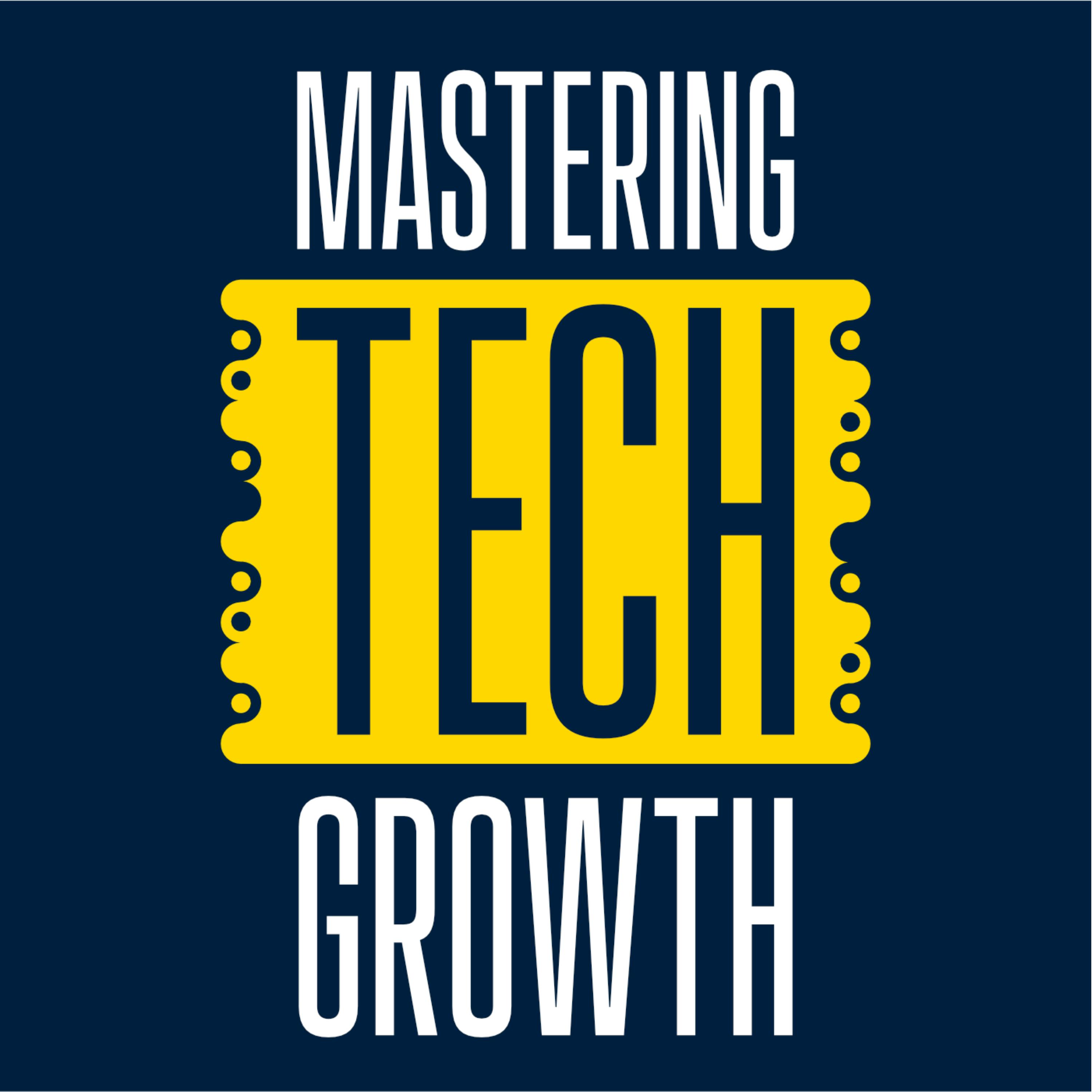
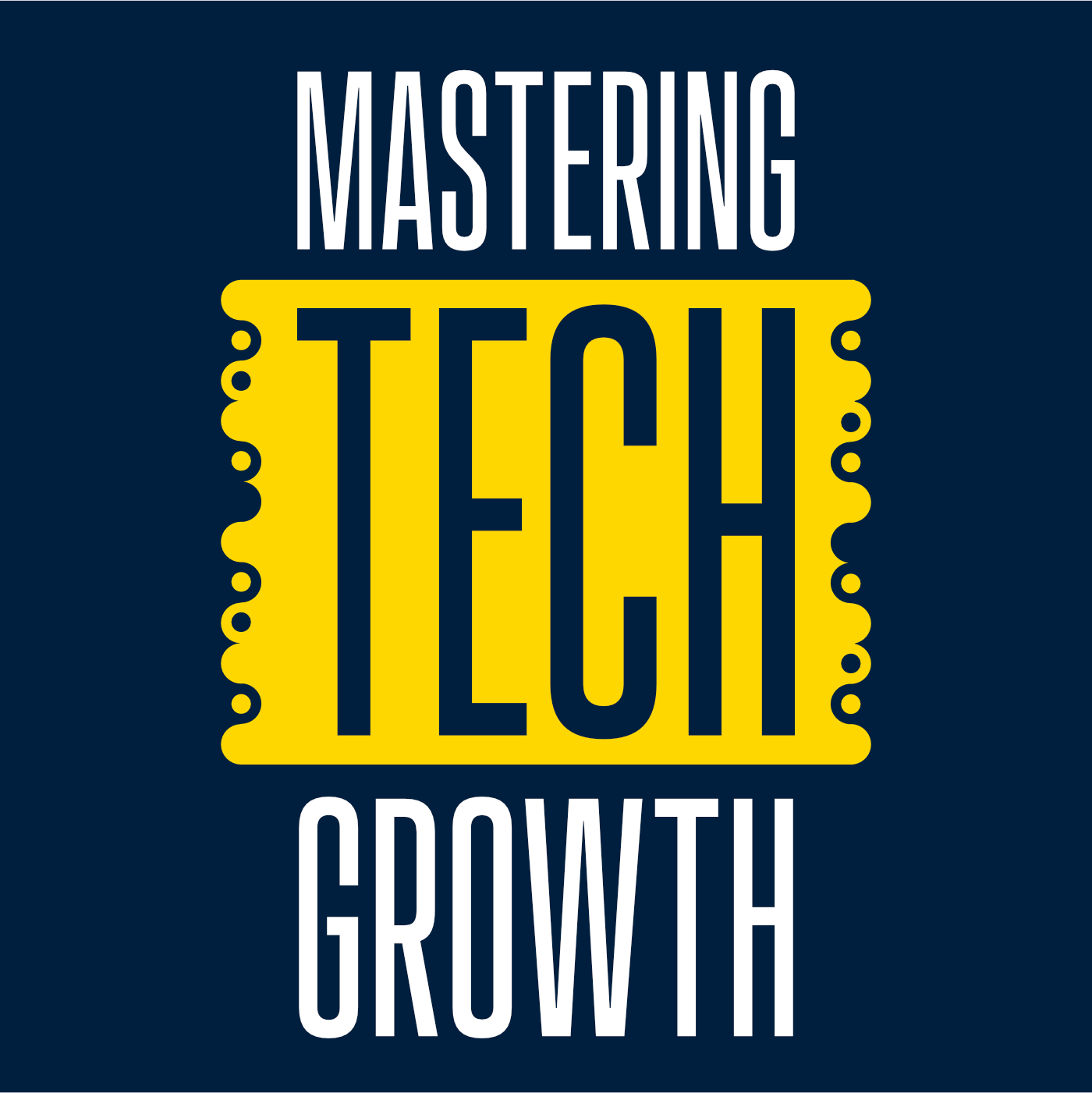
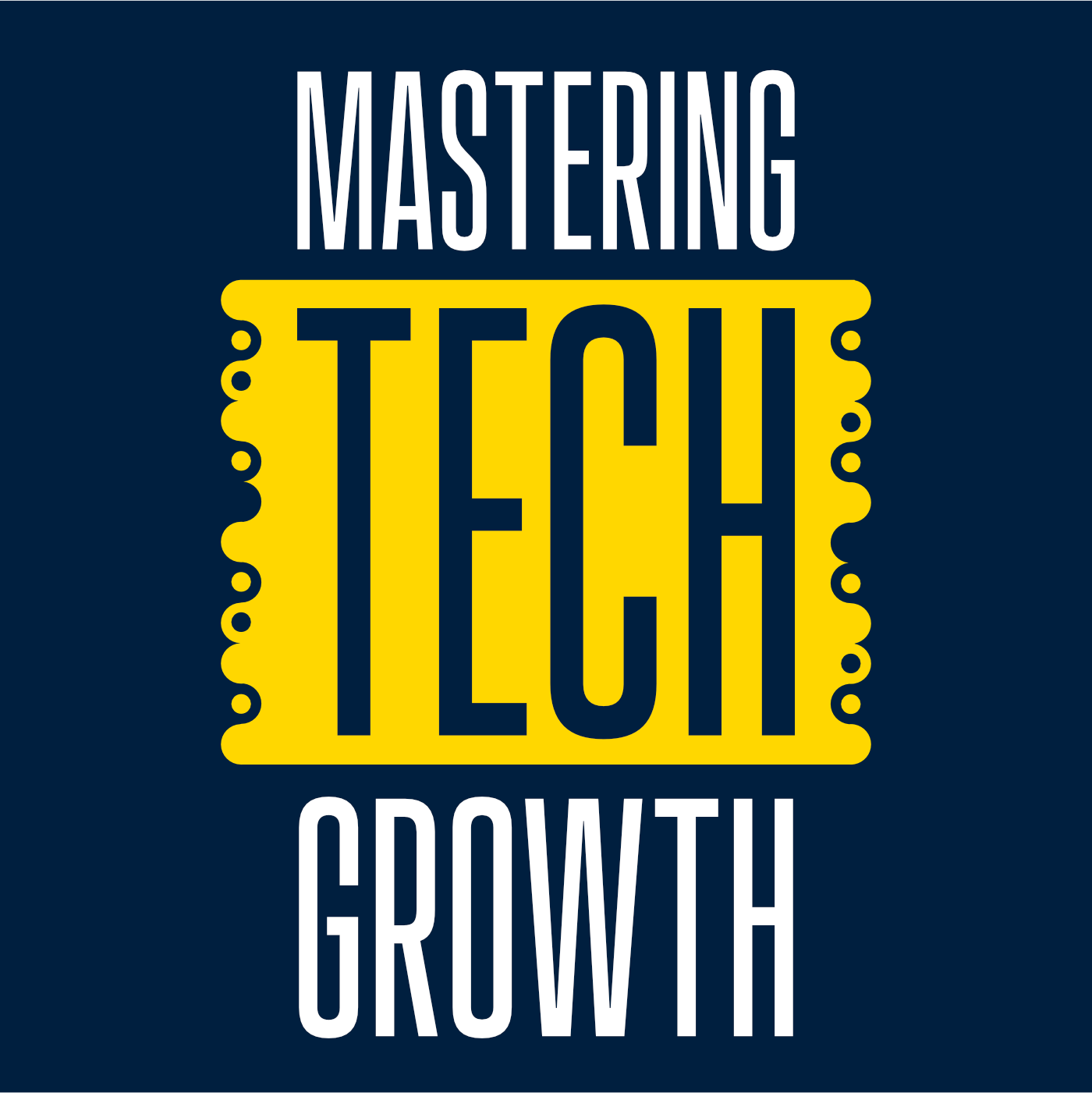
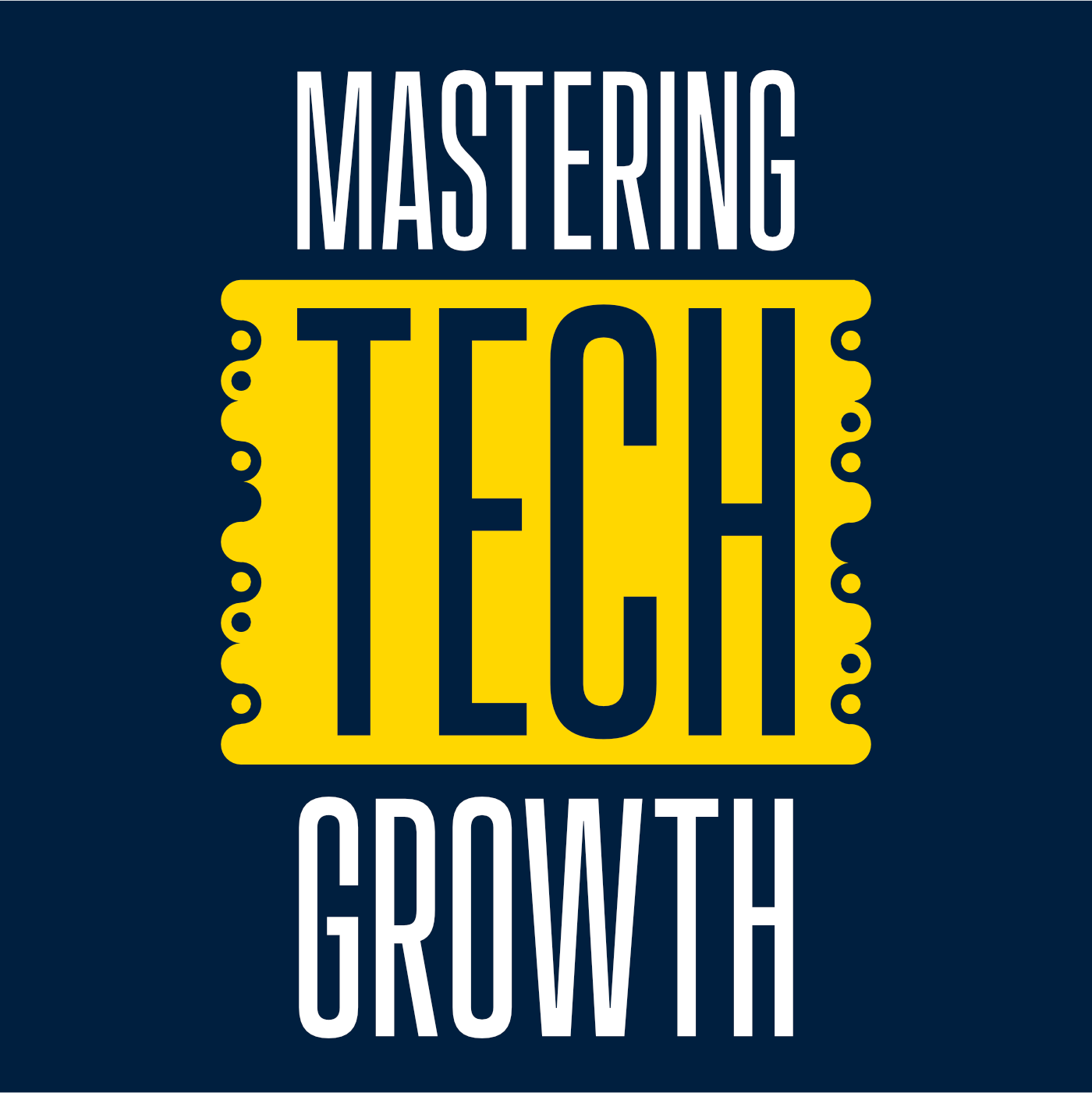
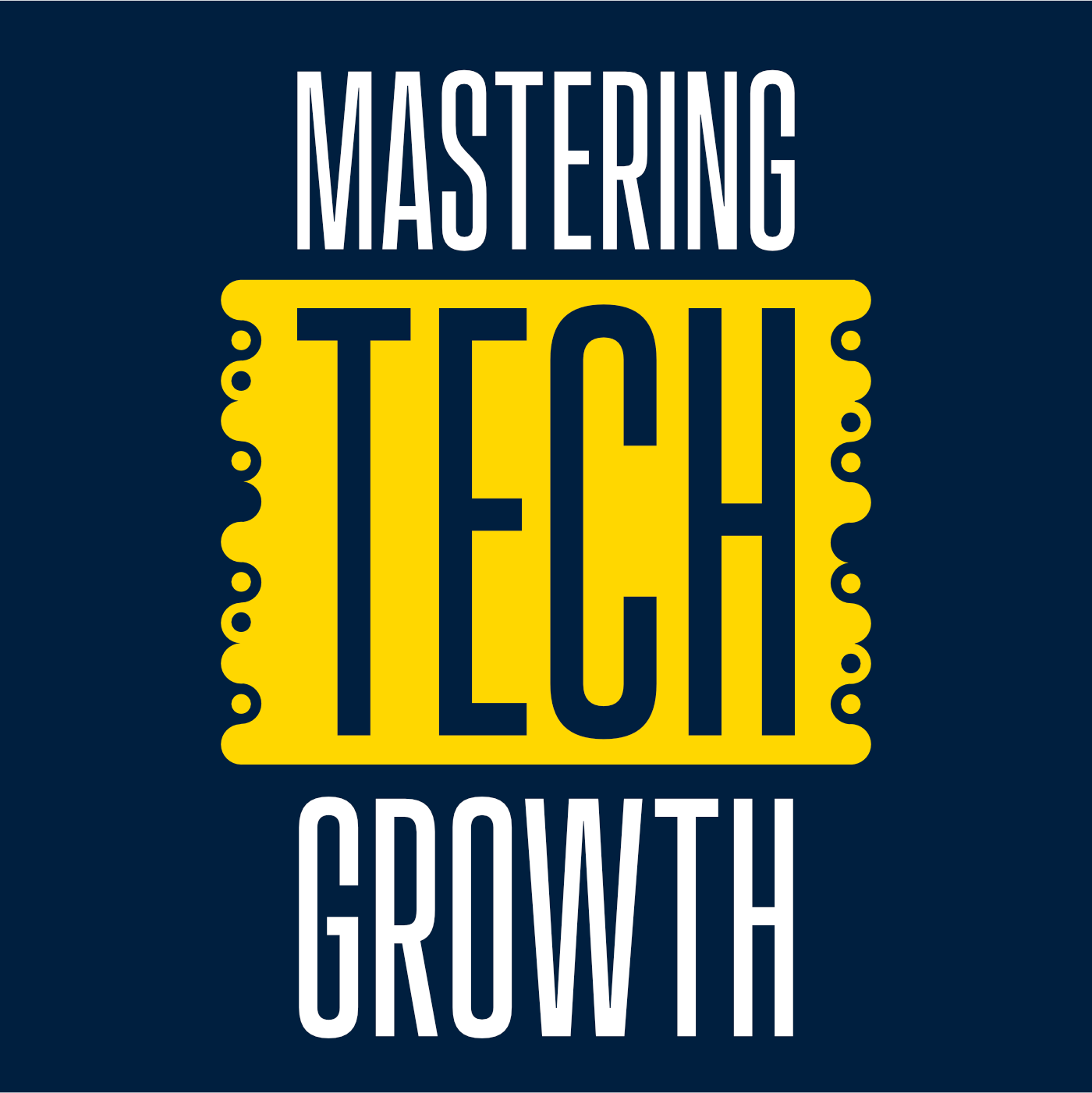
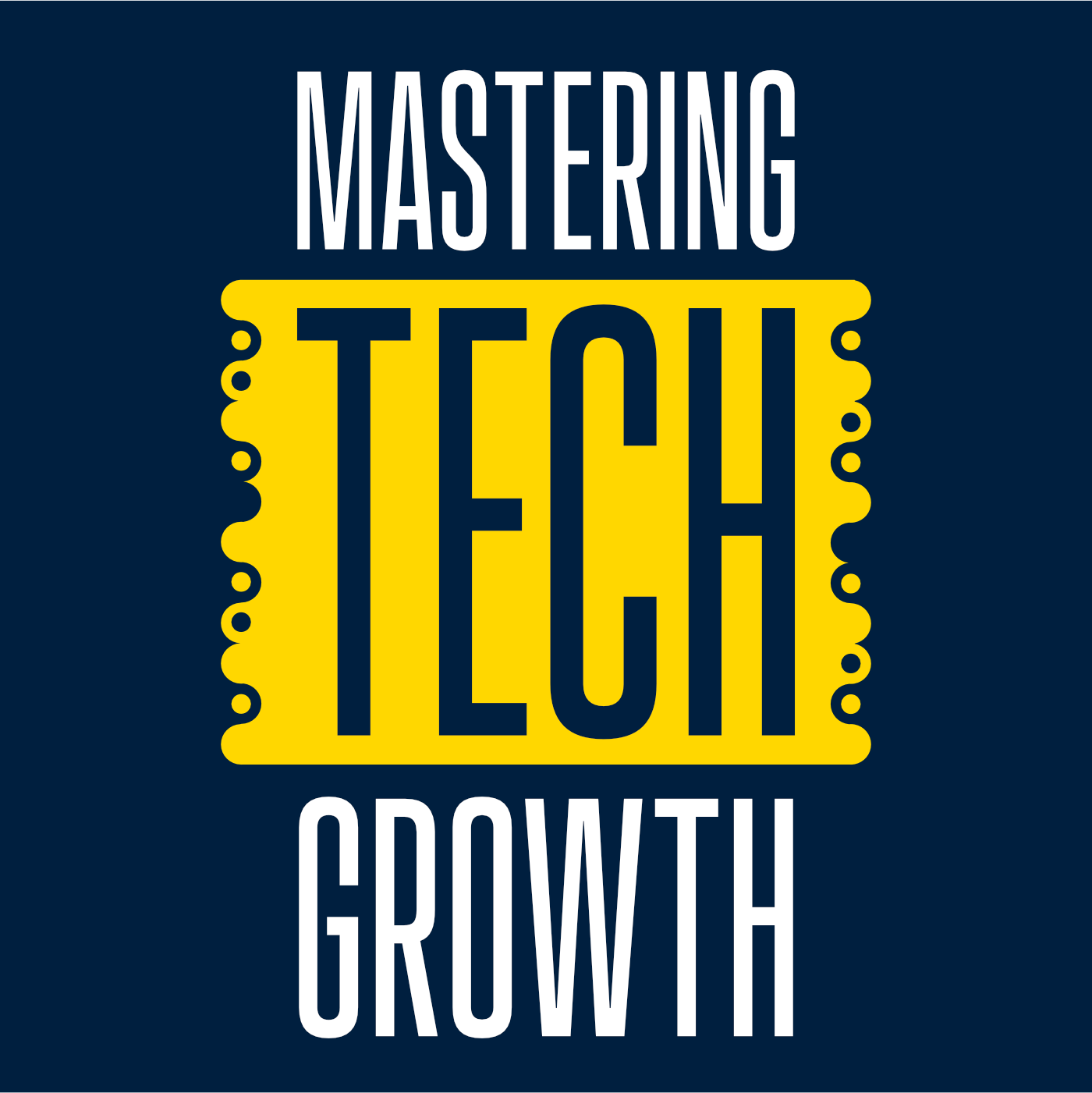
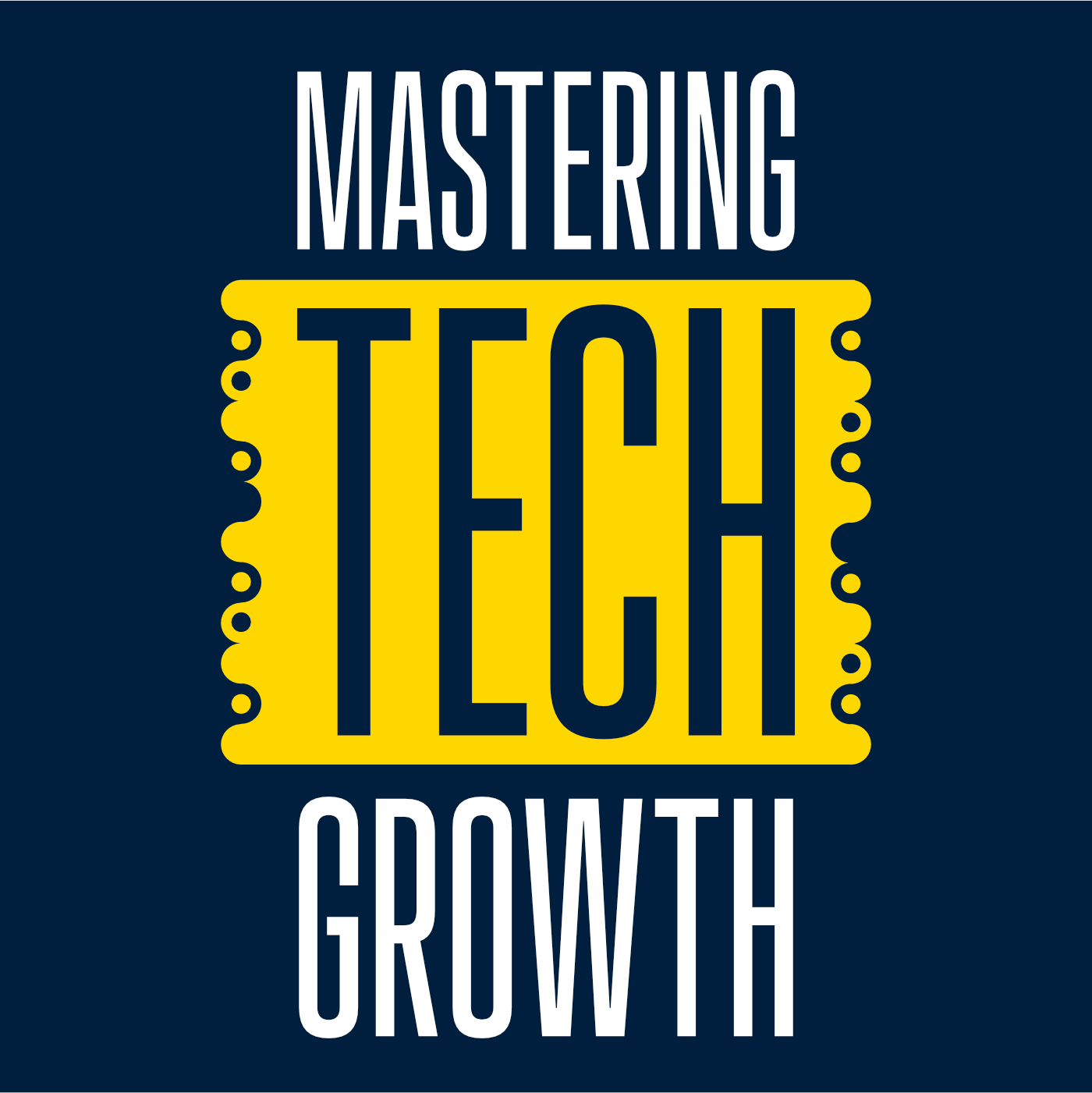
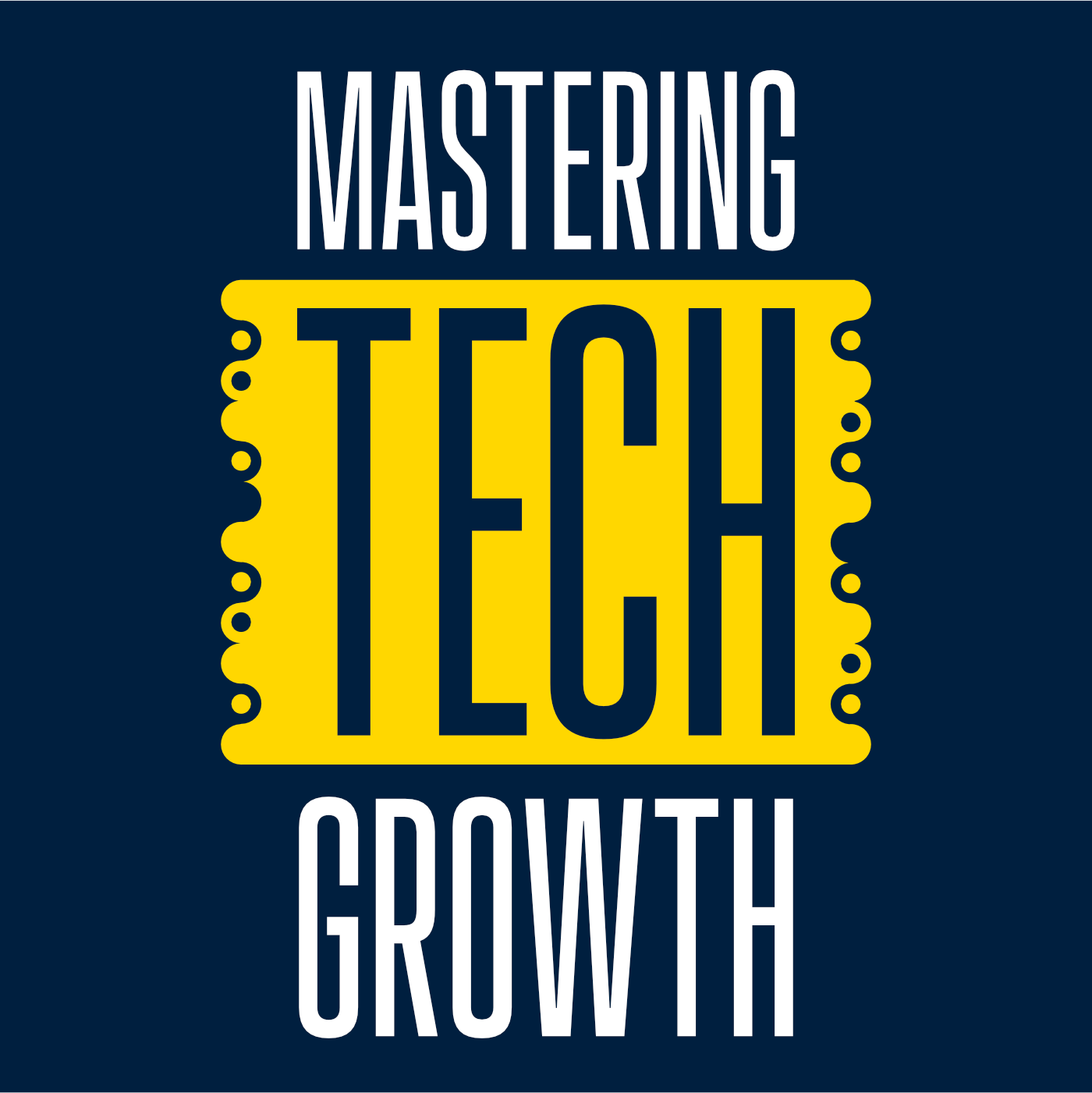
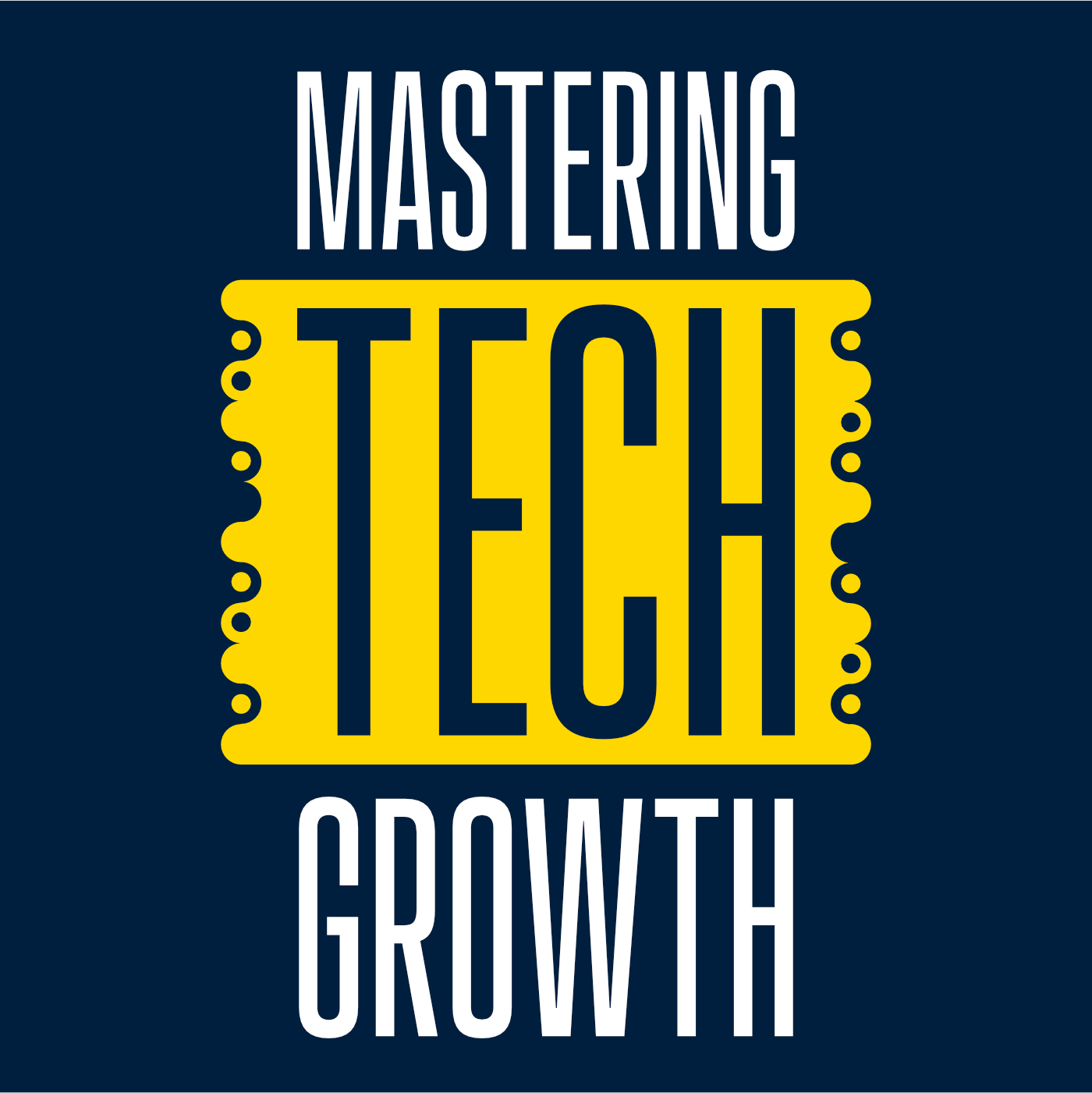



Thanks for having me on your podcast and listening to my story, I enjoyed are talk and look forward to keeping in touch.